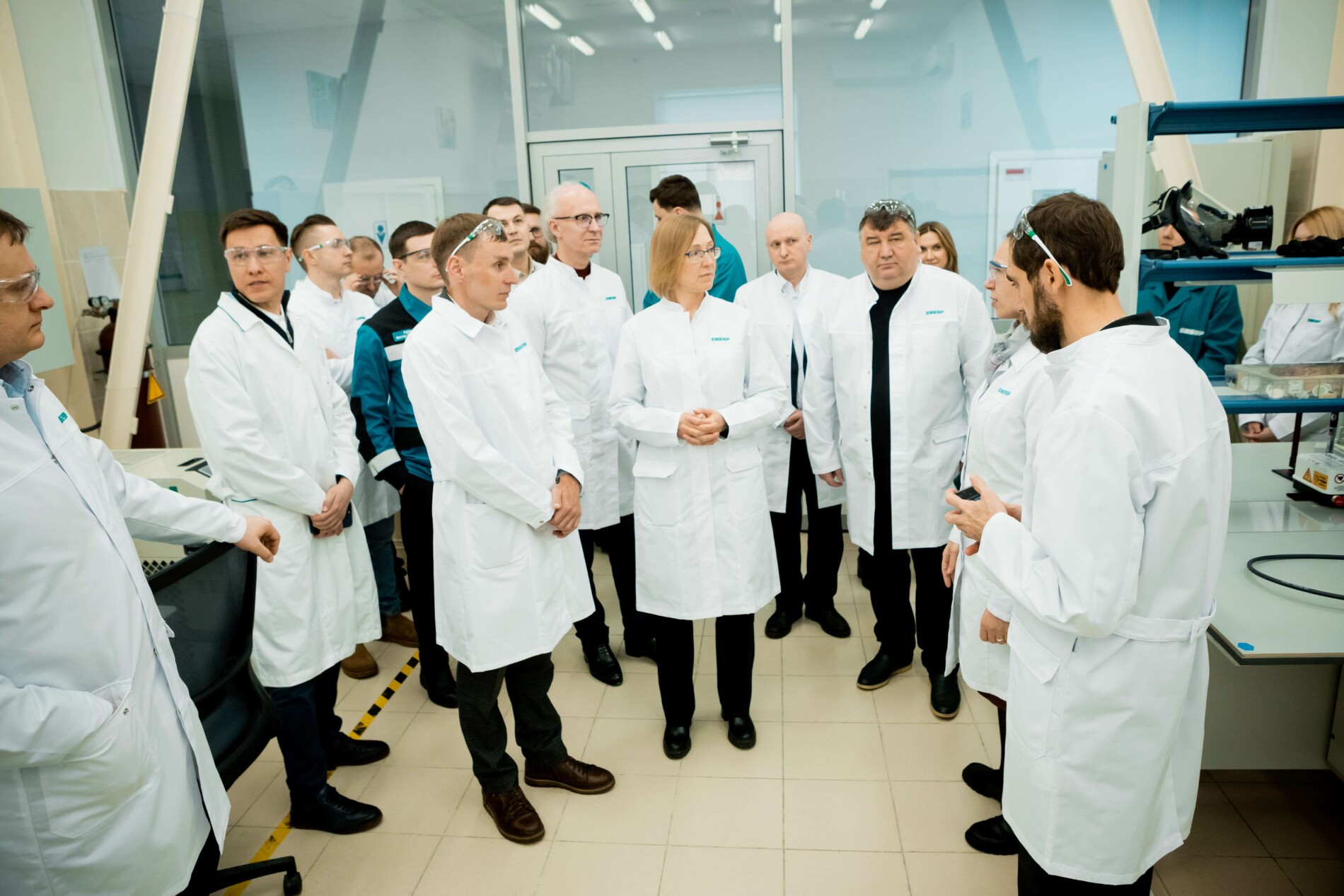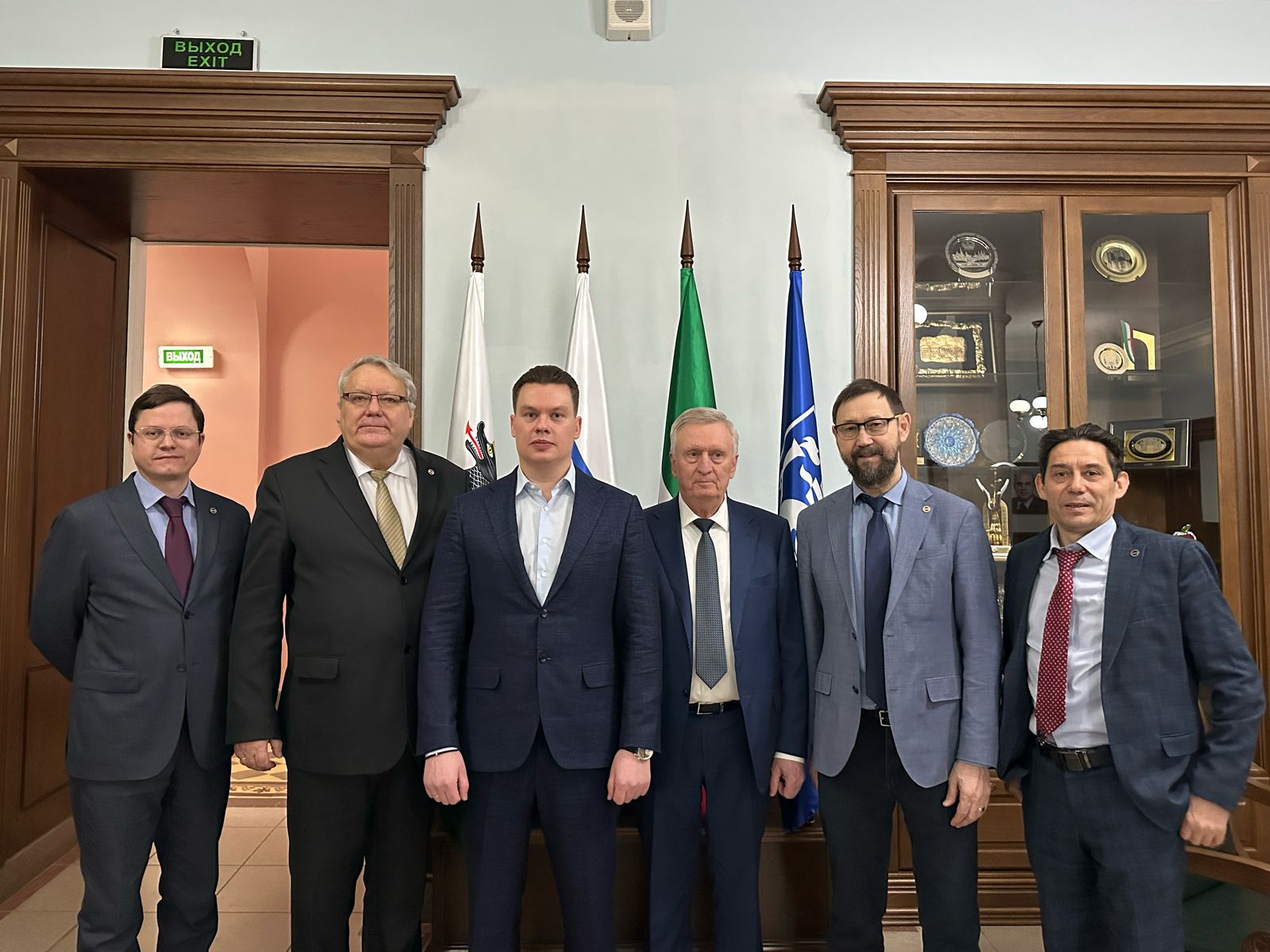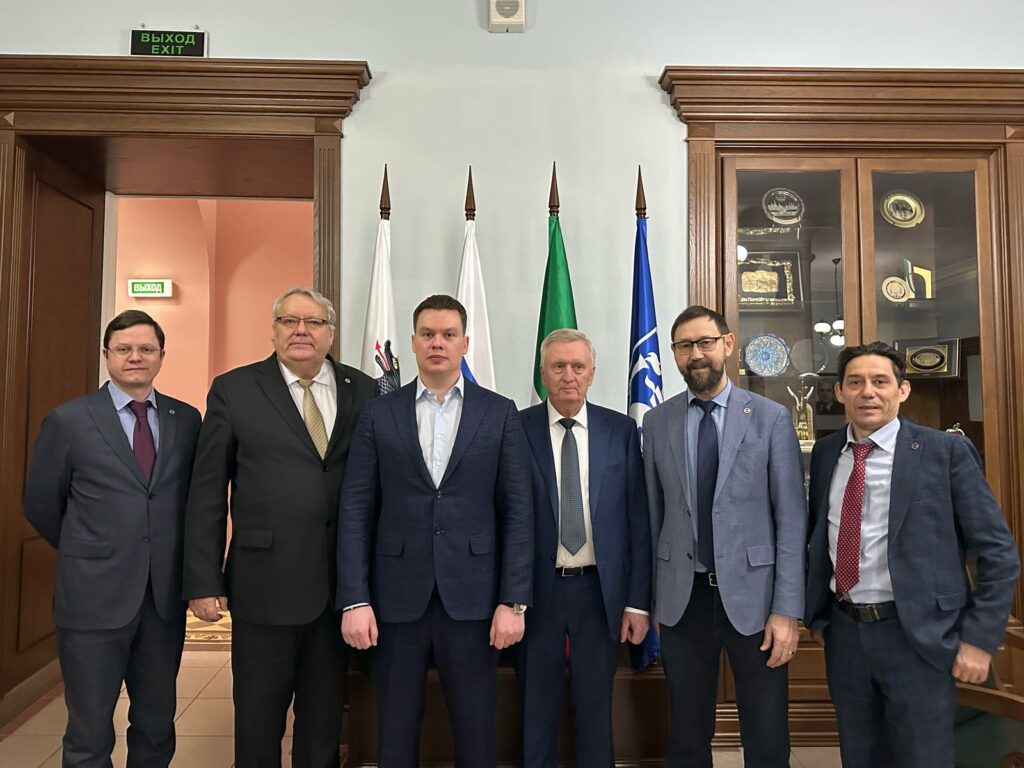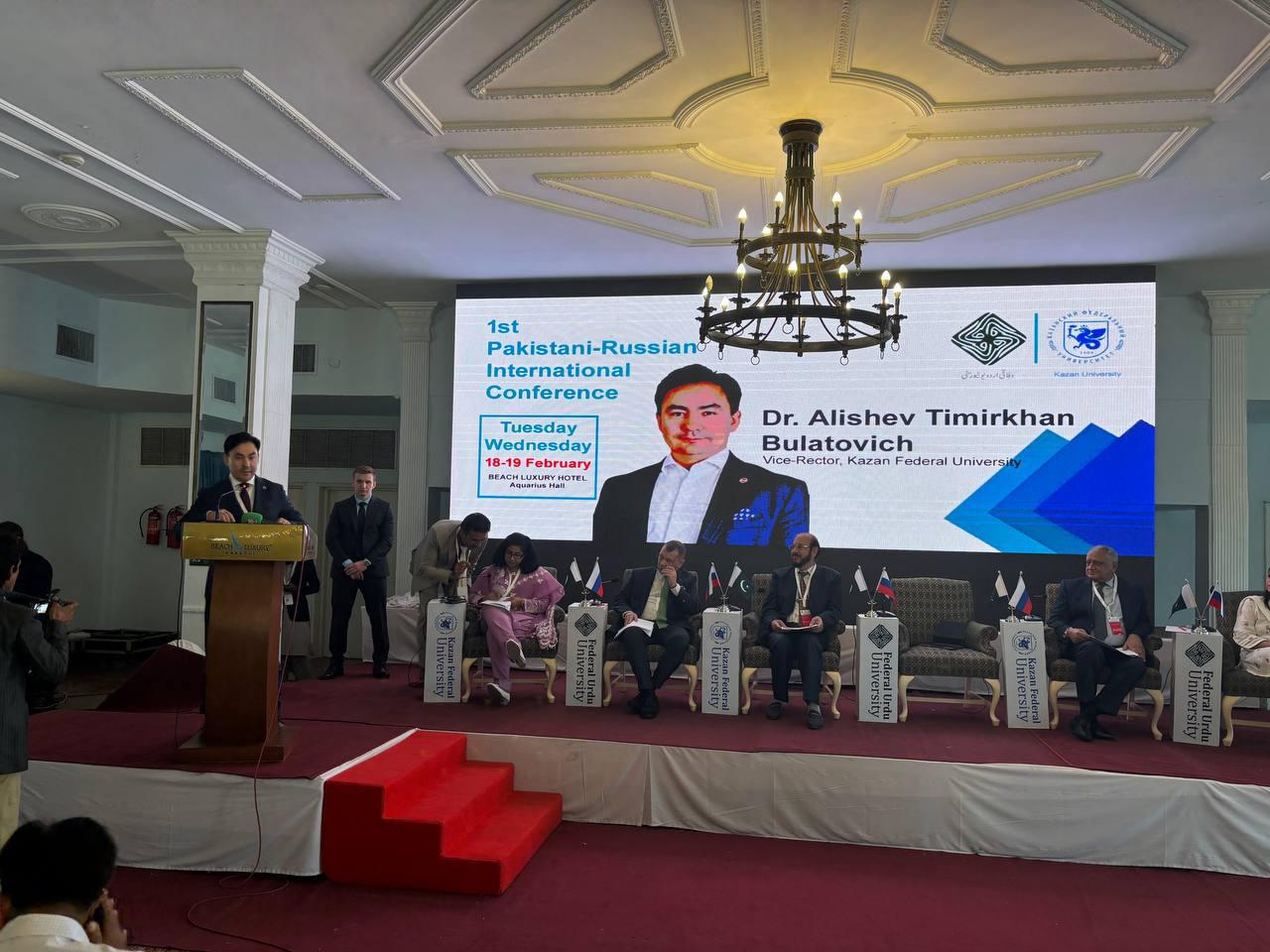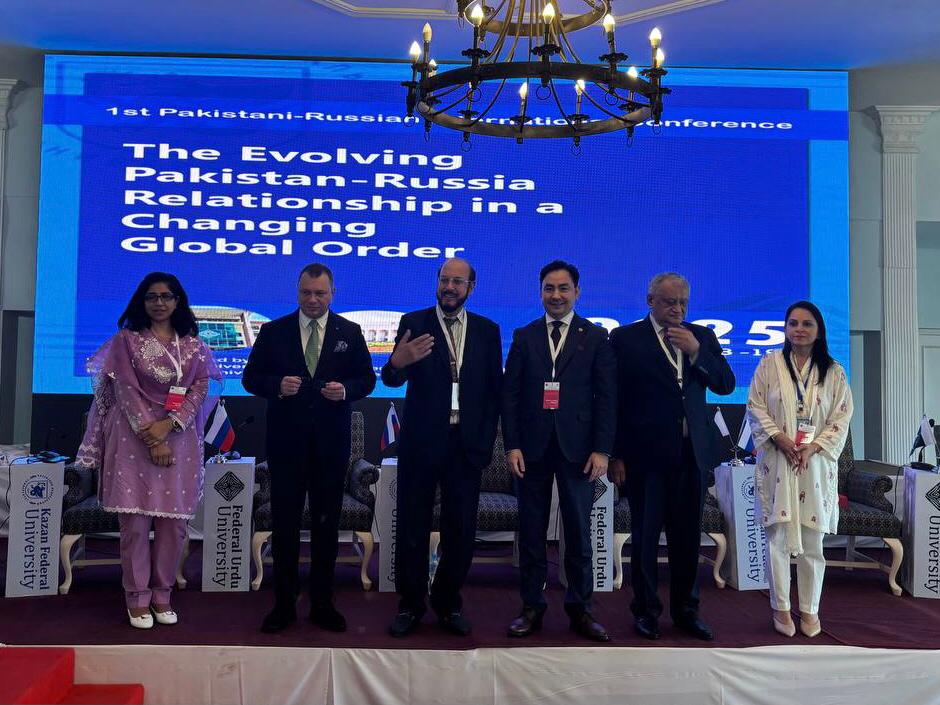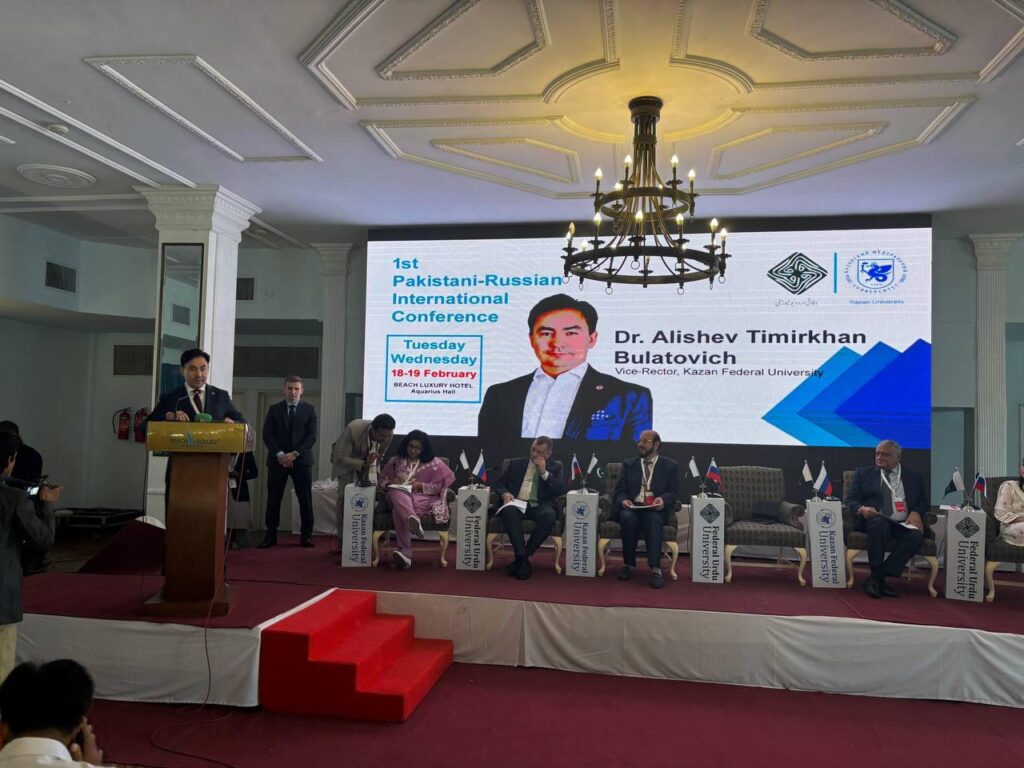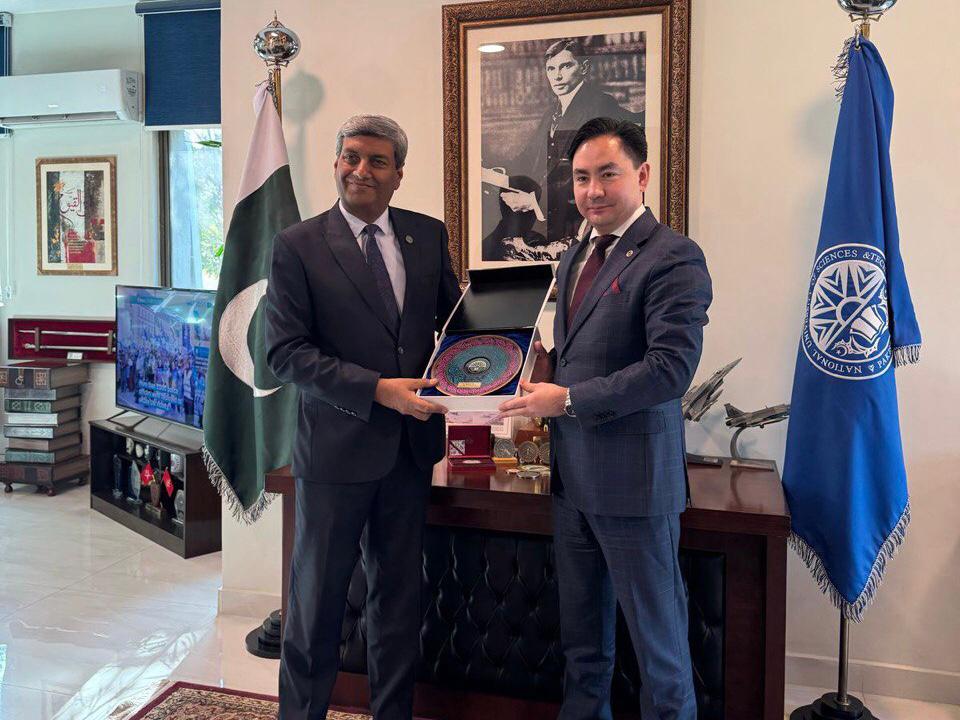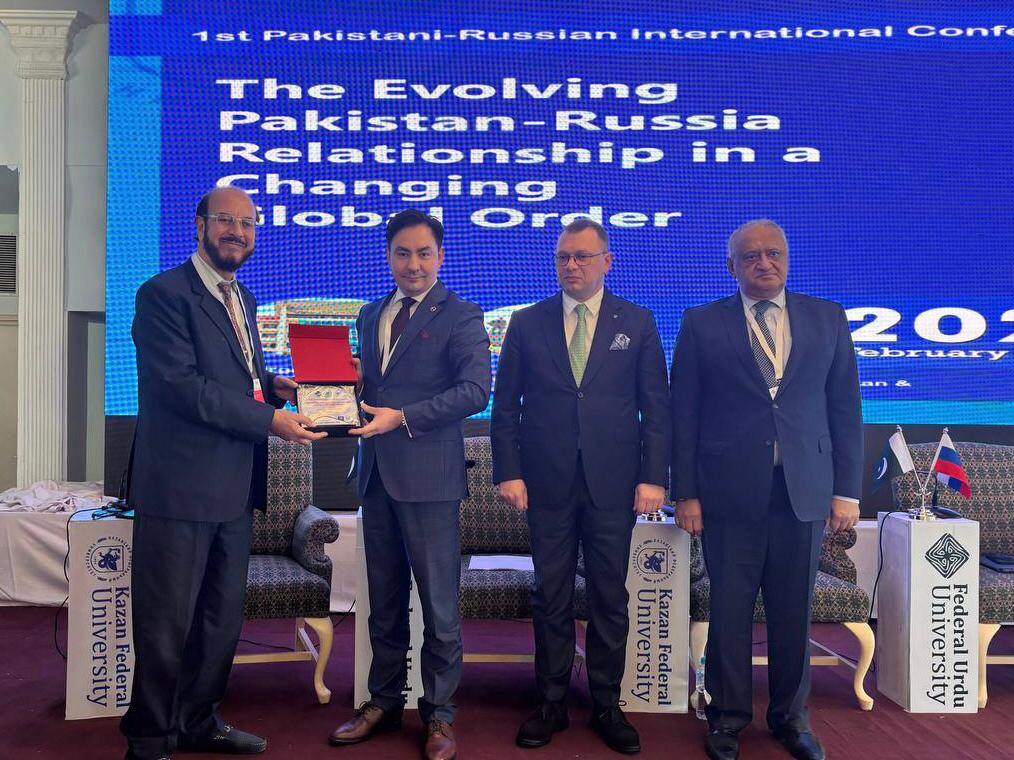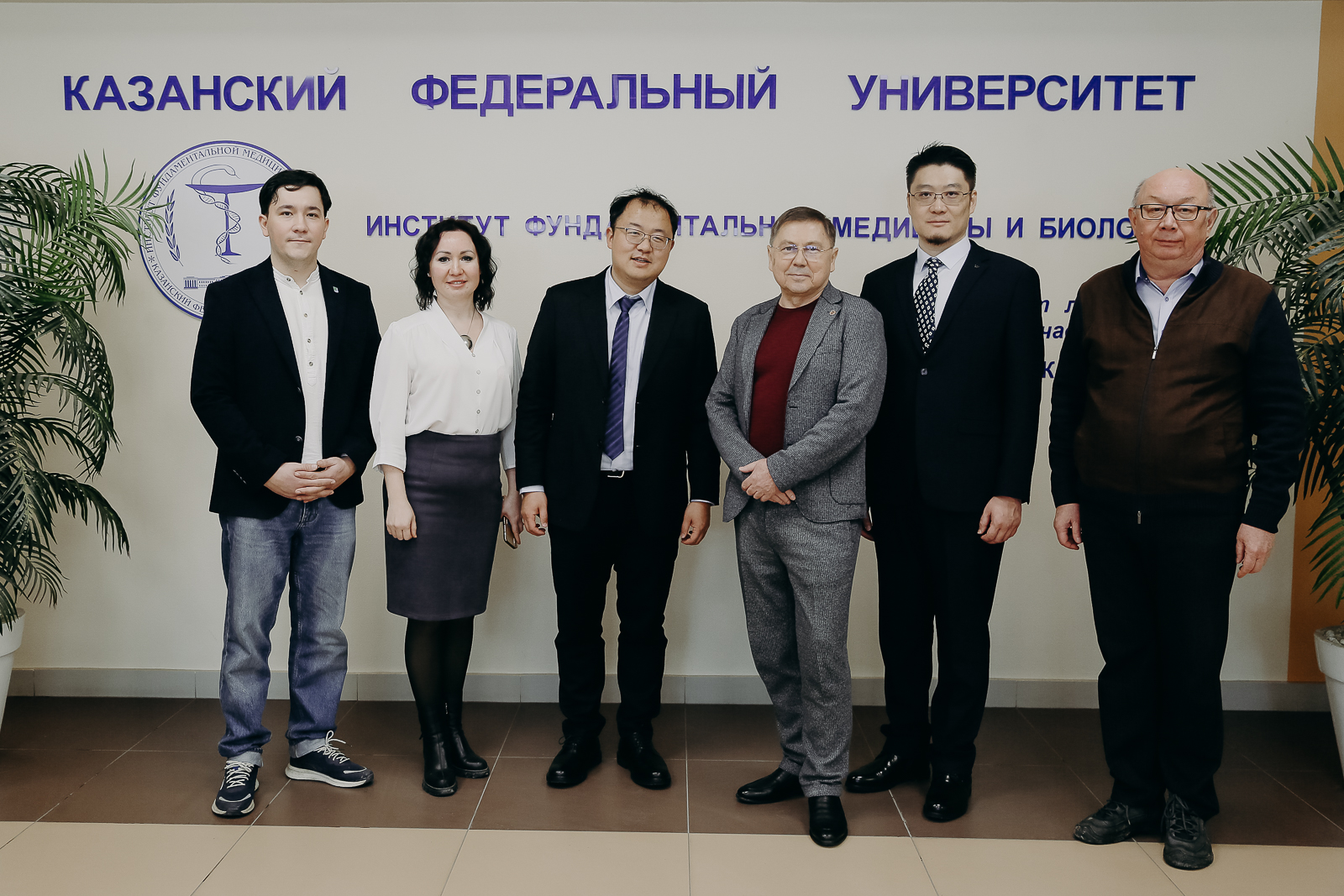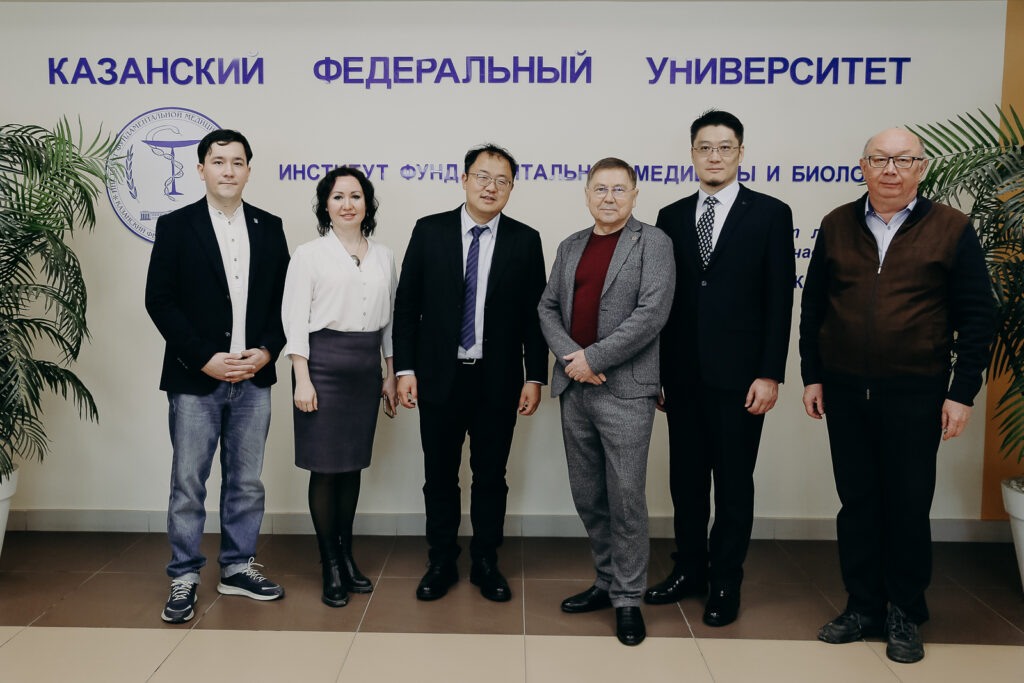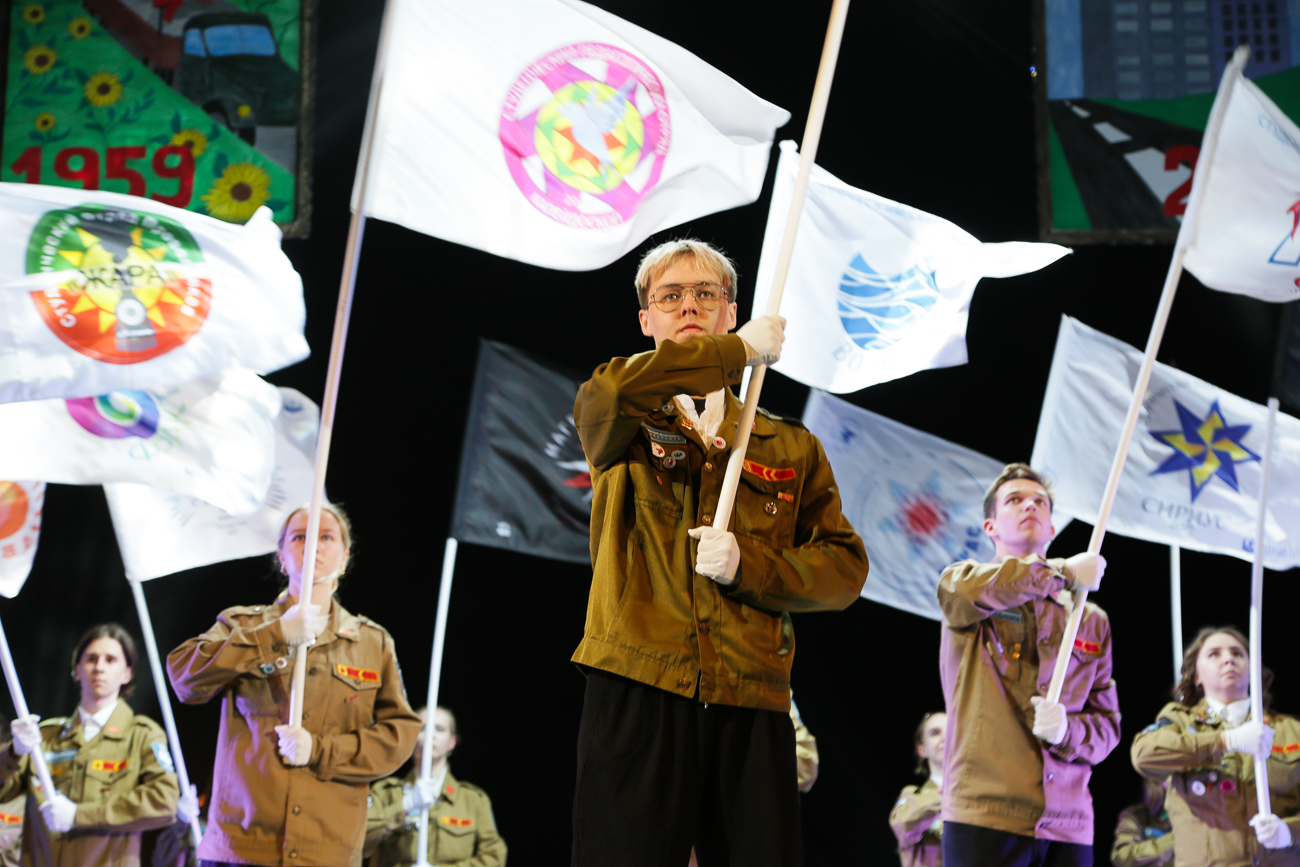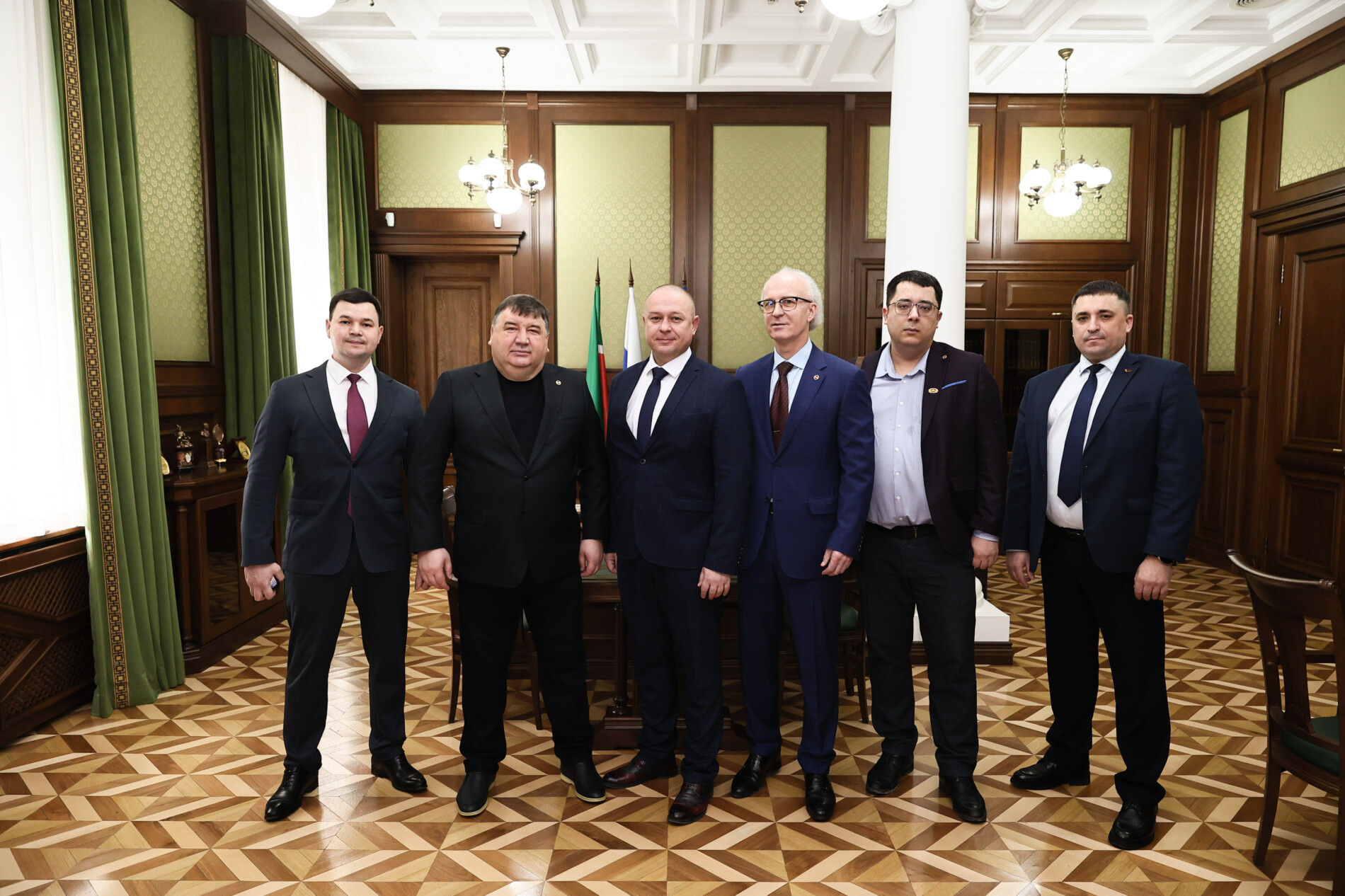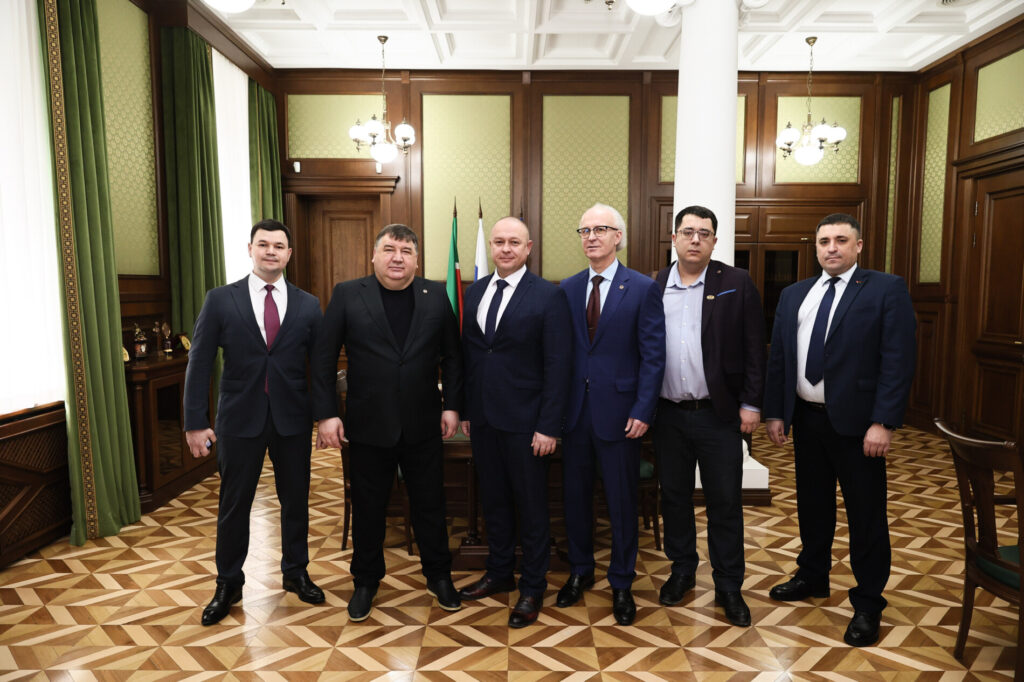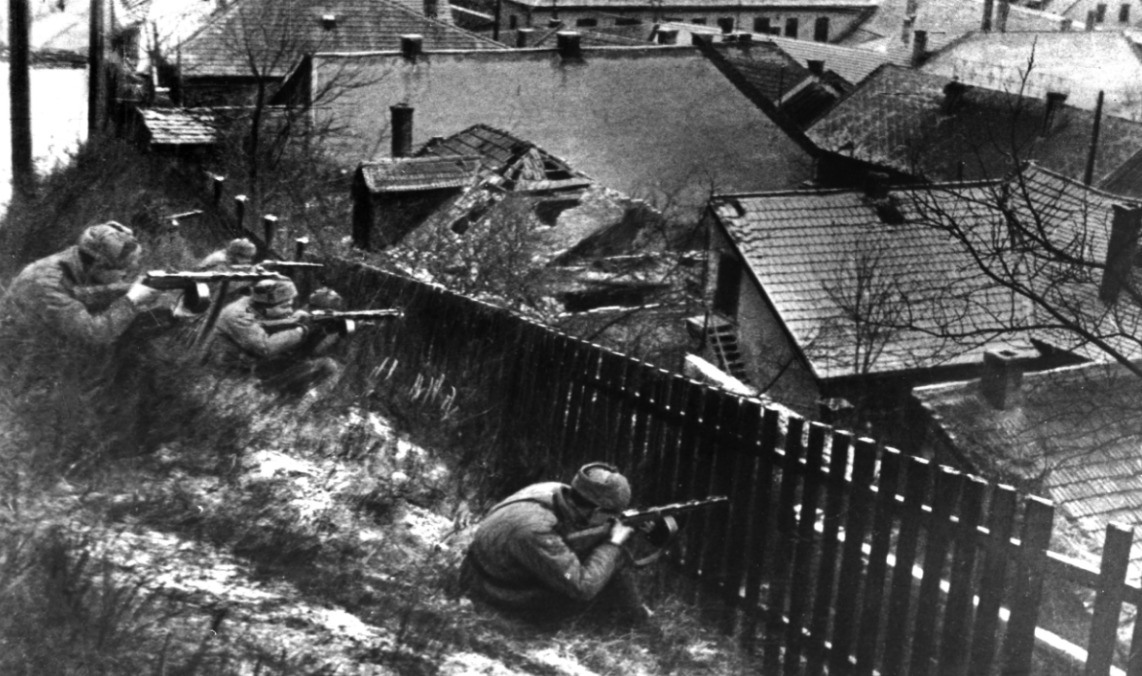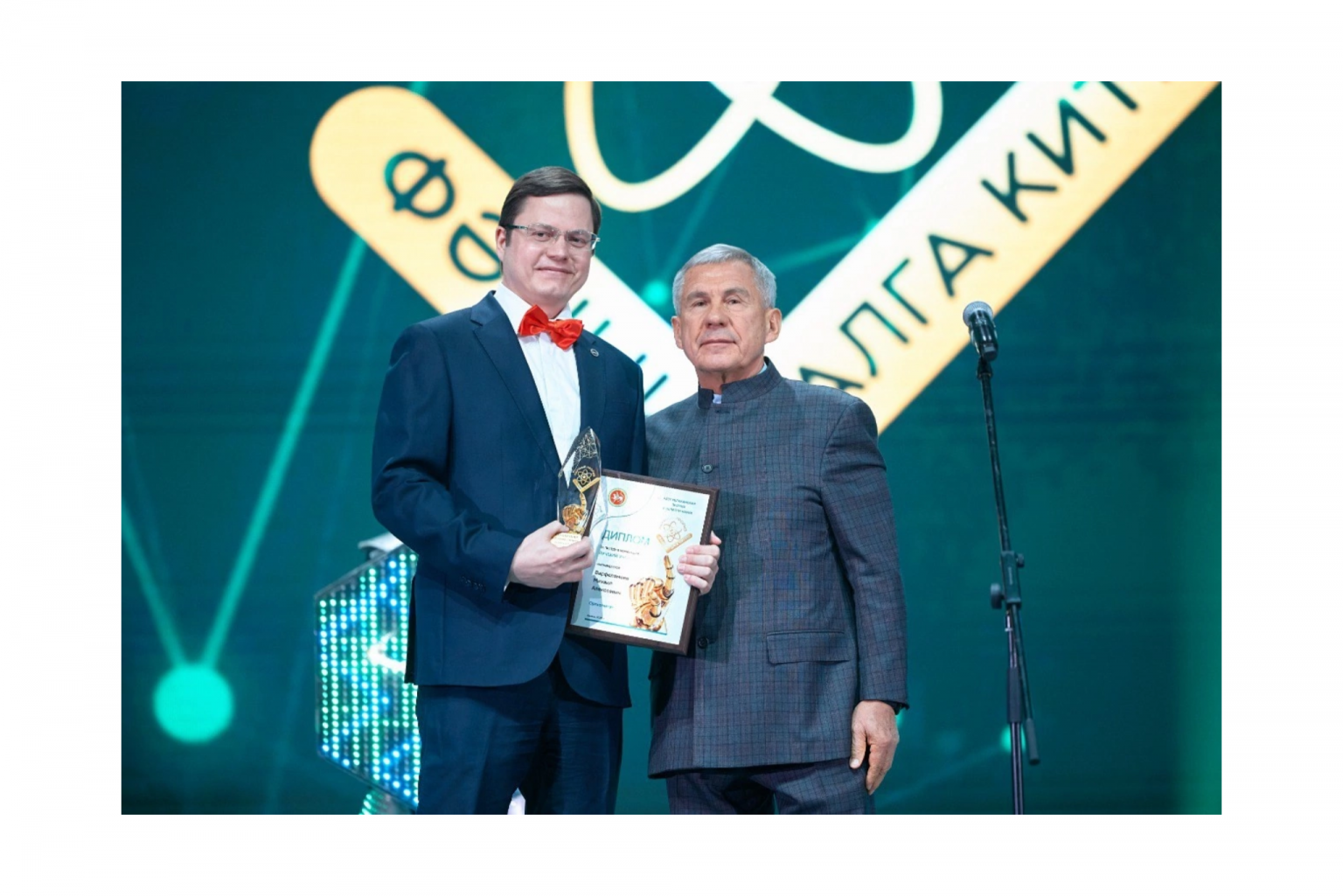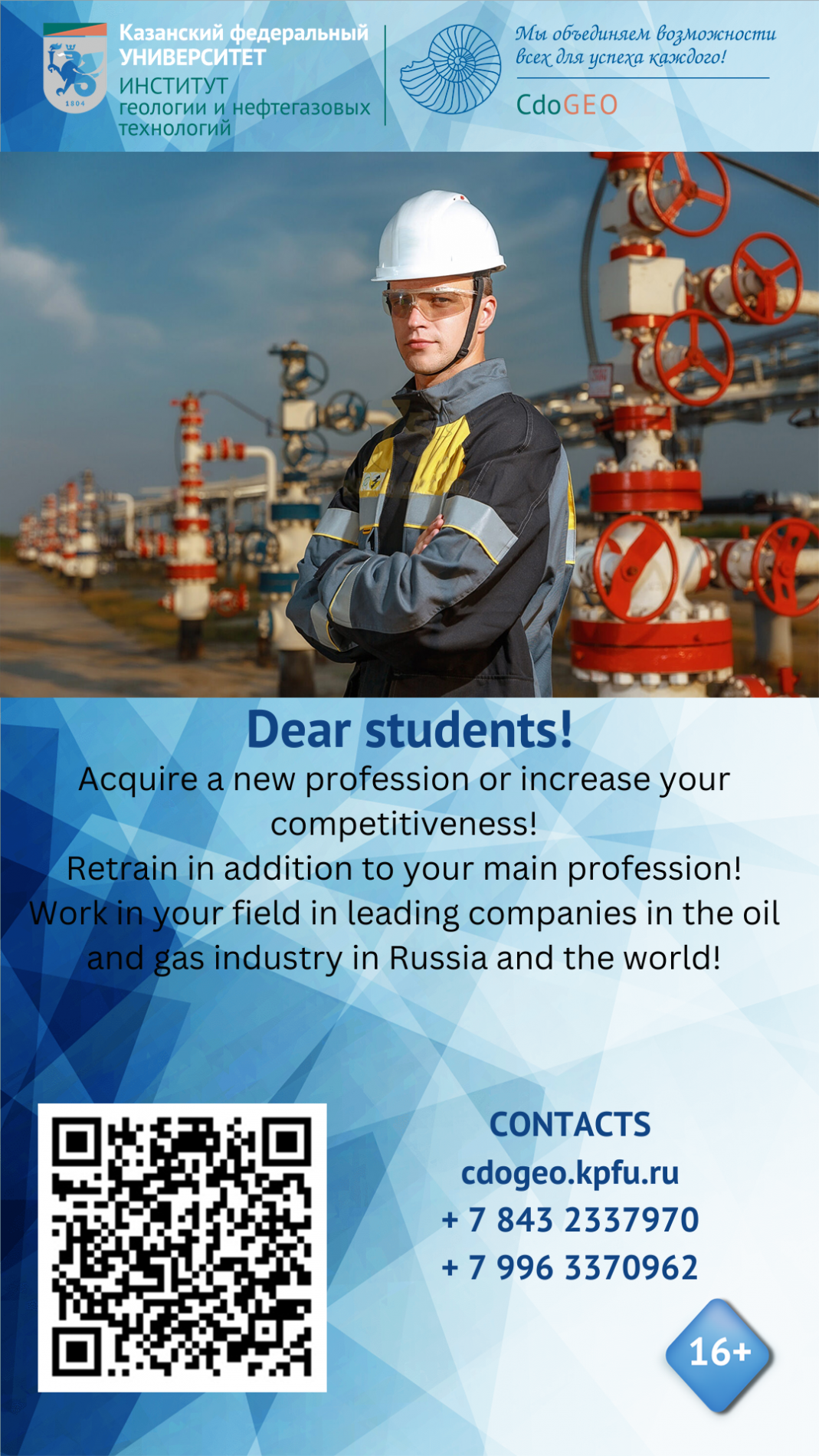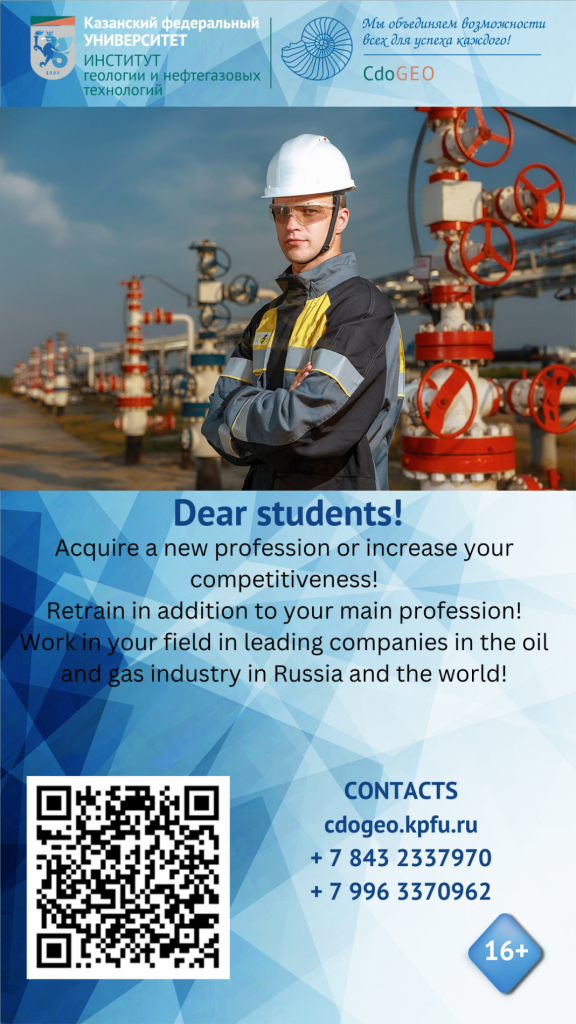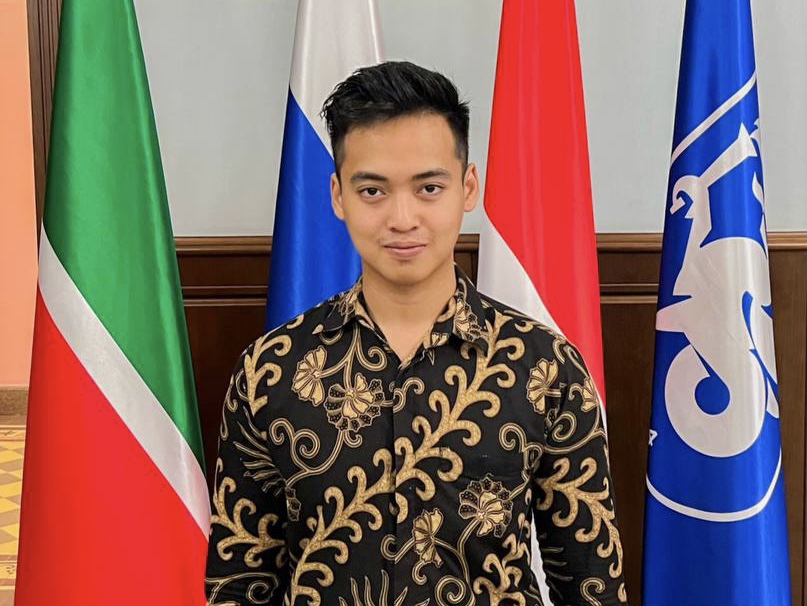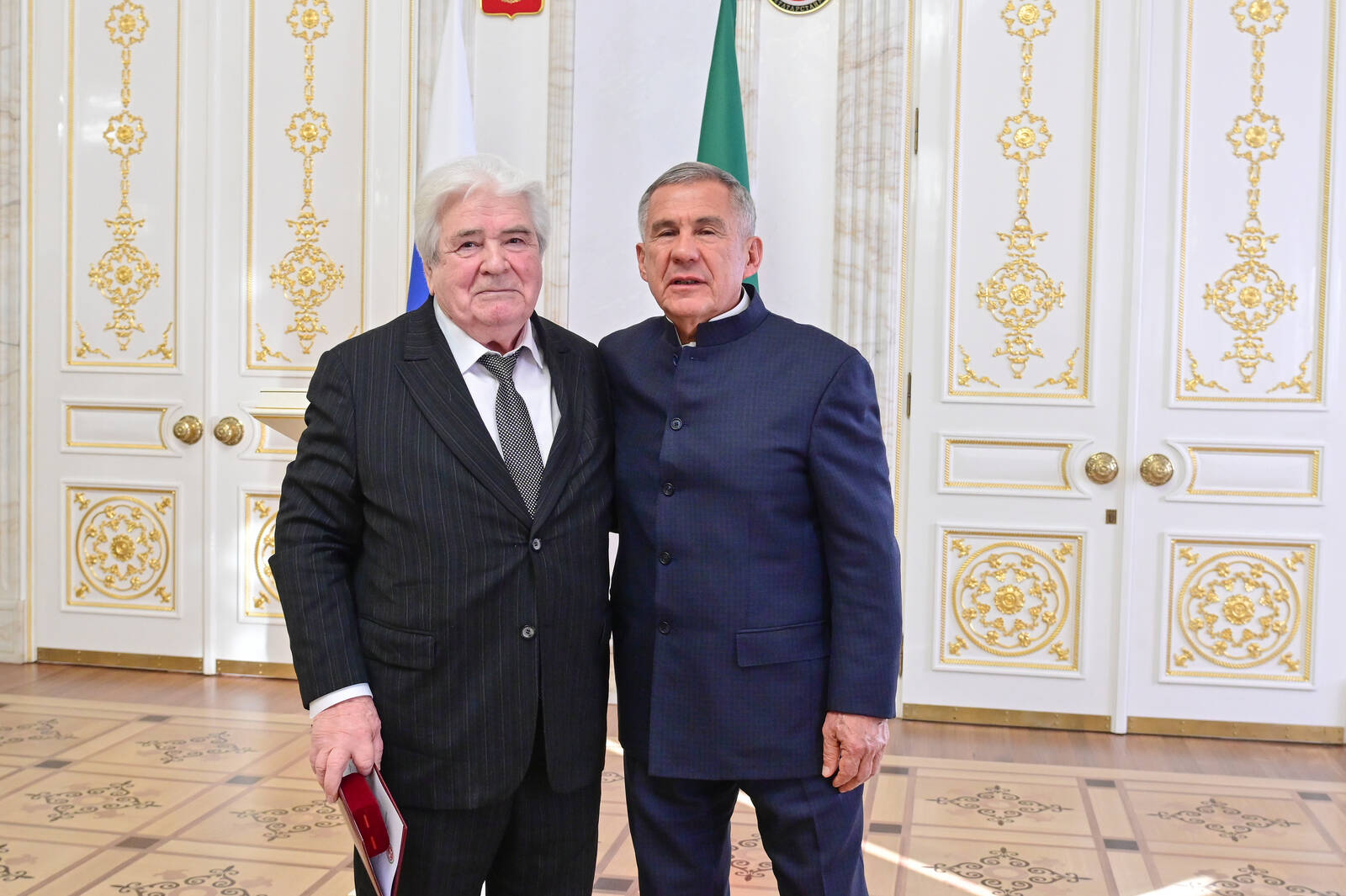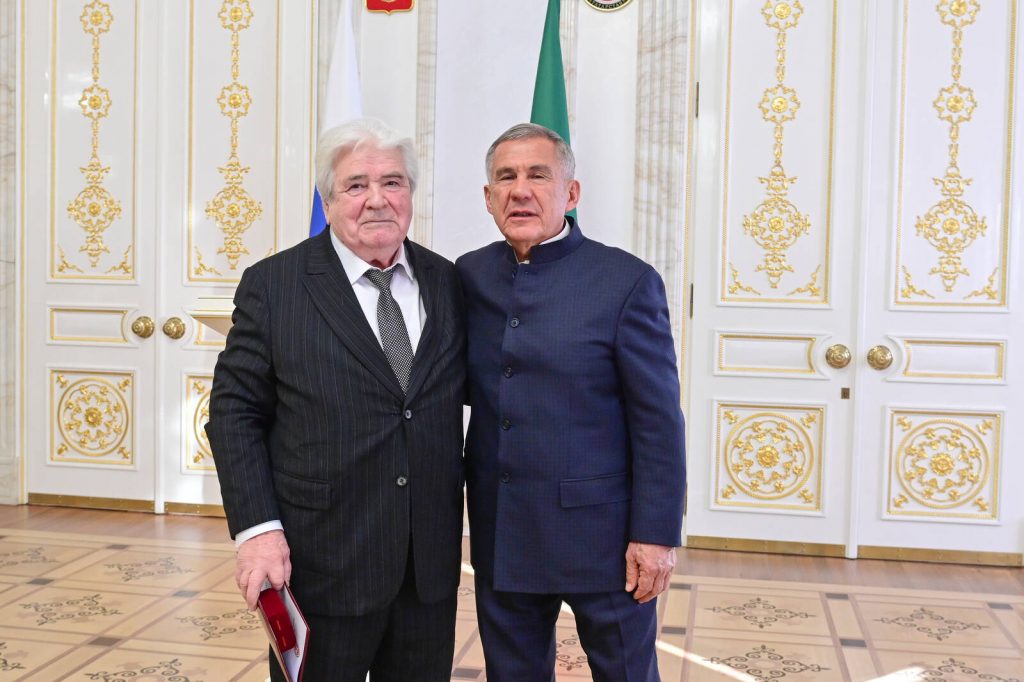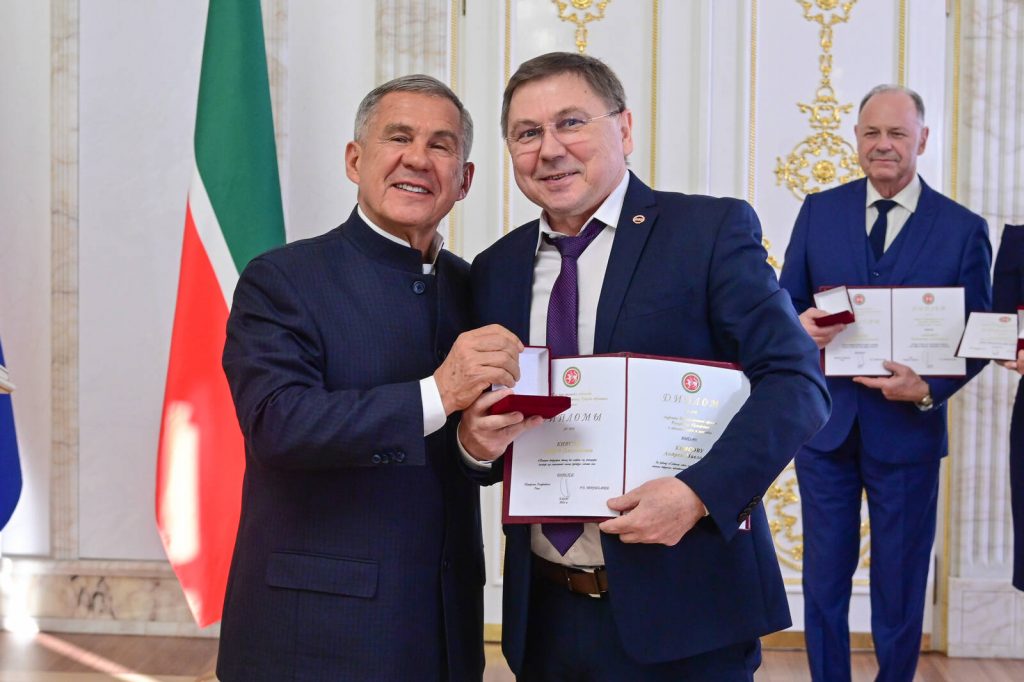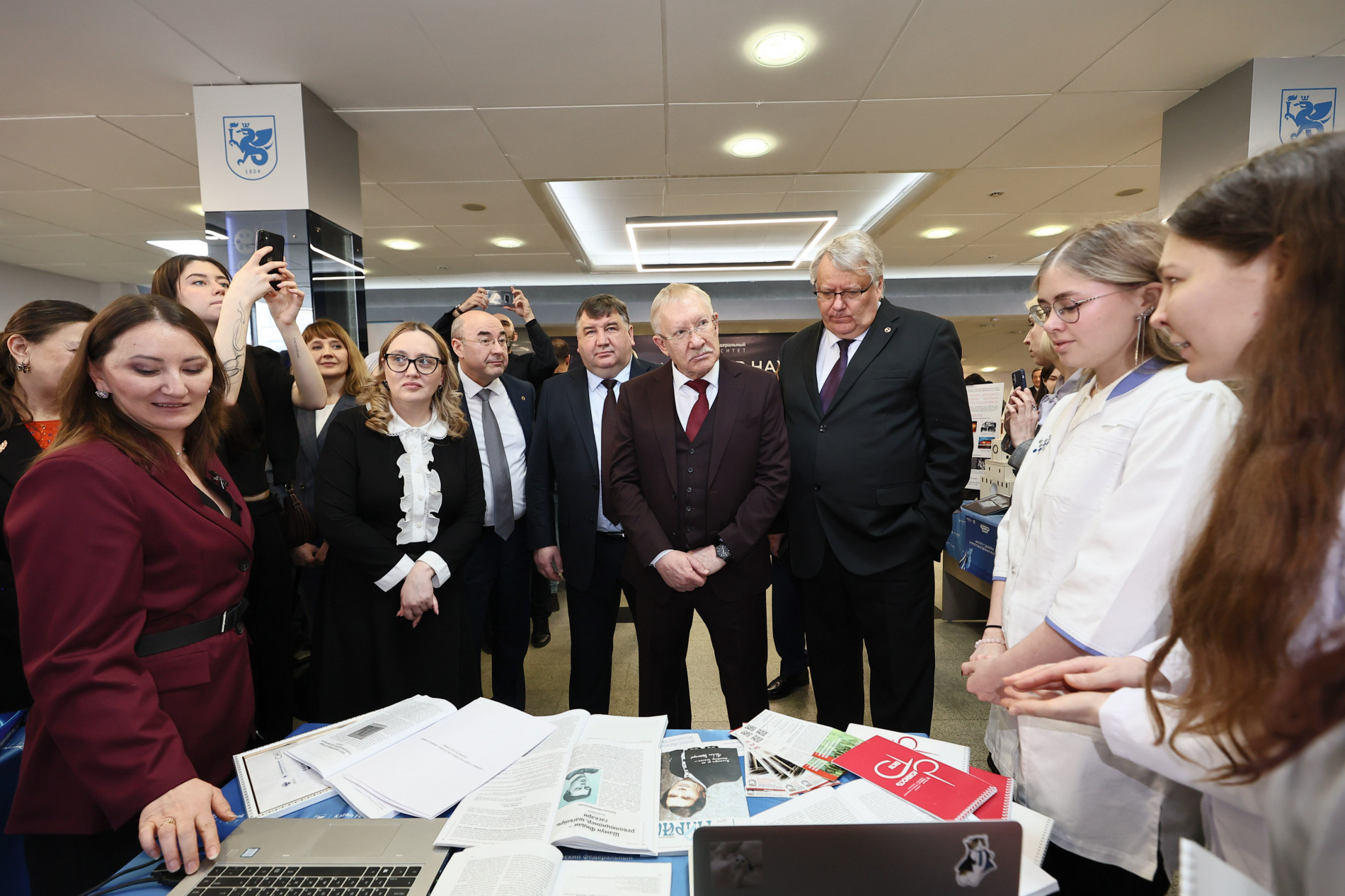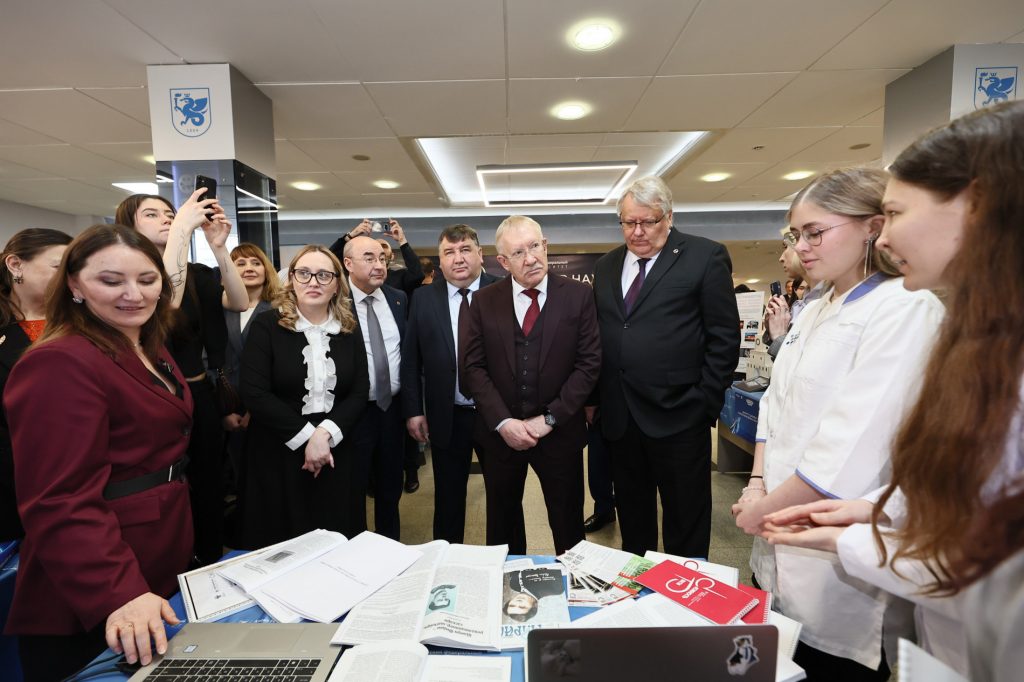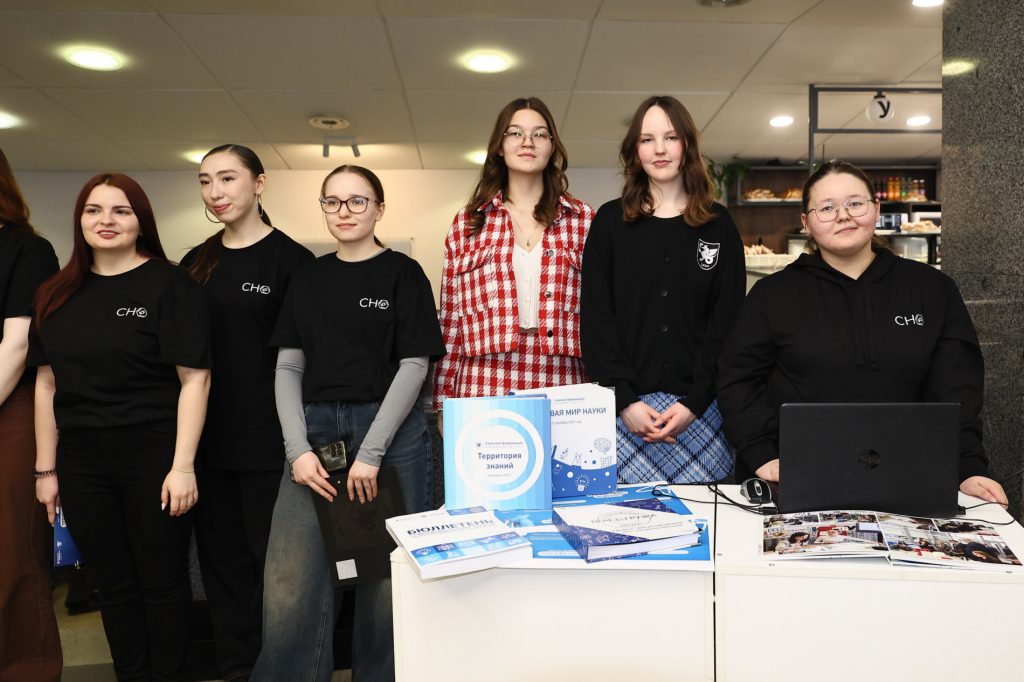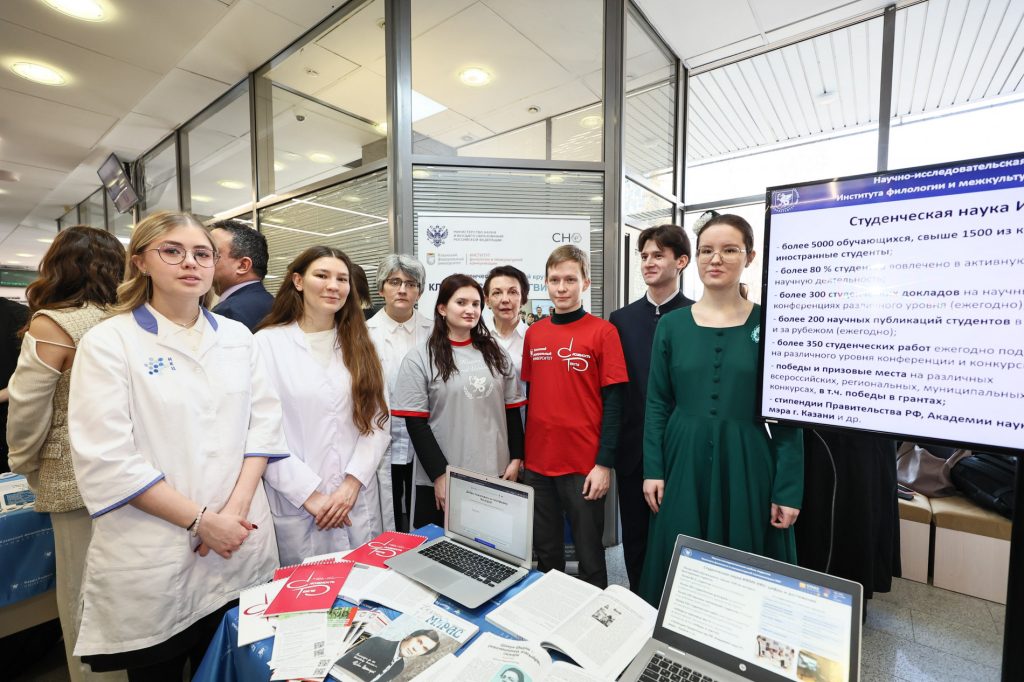Rector Lenar Safin discusses further cooperation with SIBUR representatives
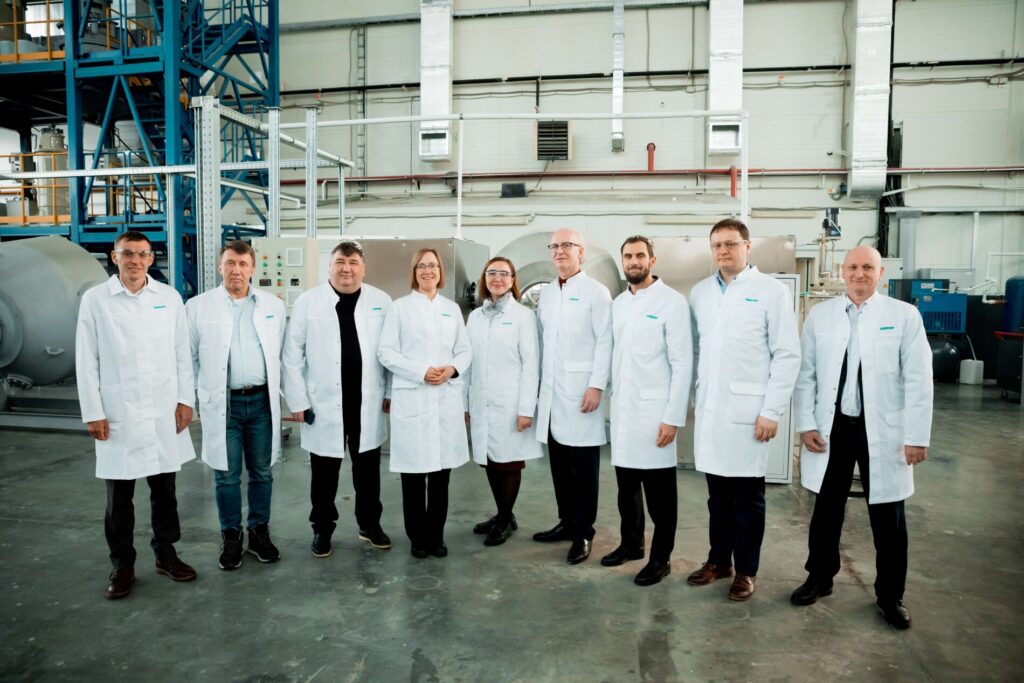
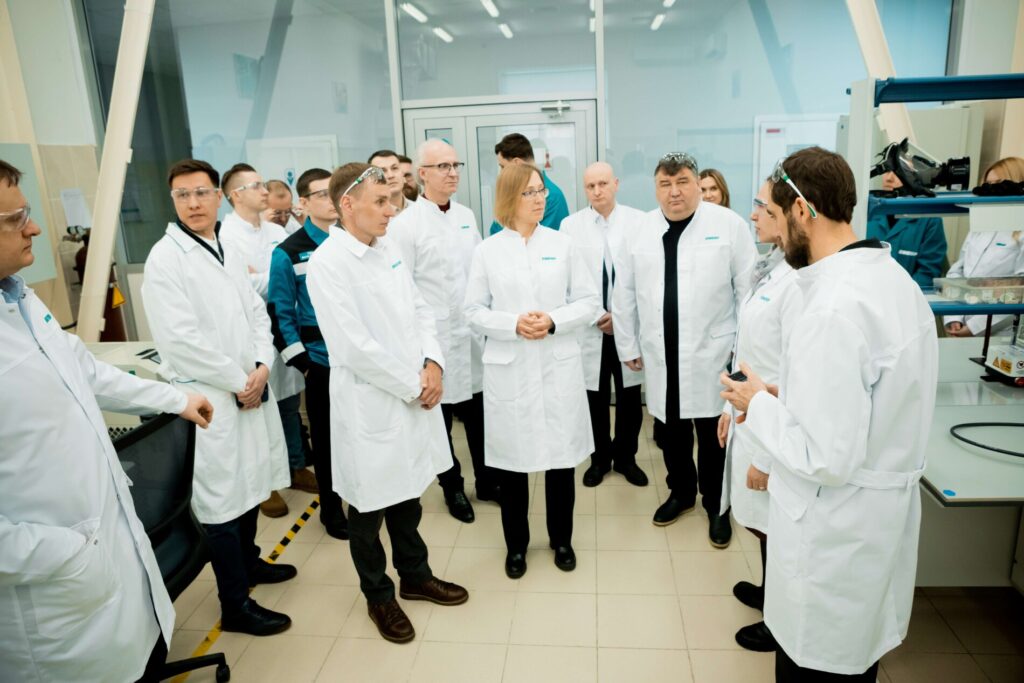
The Rector has met with Managing Director for Development and Innovation of SIBUR Darya Borisova.
The meeting was also joined by Vice-Rector for Digital Transformation and Innovation Dmitry Pashin, Director of the Institute of Chemistry Marat Ziganshin, and Director of R & D and Innovation of SIBUR Sergey Tutov.
The parties discussed further joint work on a number of projects to develop and scale up catalysts to achieve the goals of technological safety of the industry.
The Catalyst Factory, created in 2022 on the premises of Kazan University as part of the Priority 2030 program, has already produced 32 tons of catalysts for SIBUR, including a catalyst for skeletal isomerization of butylene. This is an important component for the production of rubbers. All domestic raw materials are used to obtain this catalyst. Currently, the component is successfully used in the production of synthetic rubbers at Nizhnekamskneftekhim (NKNK), Russia’s largest petrochemistry production facility.
In addition, a number of projects in heterogeneous catalysis are at various stages of implementation. In addition, new materials are being developed at early stages of research.
As part of the tour, the Rector and his guests visited the laboratories for the synthesis and testing of heterogeneous catalysts of various types and inspected the pilot production workshop.
About 80 people work in the laboratories and at the Catalyst Factory – employees of the SIBUR Innovations research center and KFU scientists. The facility is equipped with all the necessary equipment to implement the full technological cycle of catalyst production, and the close integration of the enterprise with the university allows for the development and implementation of Russian catalytic systems in industrial practice.
The sides discussed plans to create a specialized master’s degree program at KFU. This project will allow future specialists to obtain theoretical and practical knowledge in heterogeneous catalysis, as well as work on the installations of the SIBUR Innovations
“This will create additional opportunities for training,” said Lenar Safin. “The implementation of a joint master’s program with SIBUR will allow us to educate specialists with deep theoretical knowledge and practical skills with advanced technologies. This is a strategically important step for the development of the scientific potential of the university and the industry.”
Darya Borisova, in turn, emphasized that the possibility of placing the company’s equipment on the university’s premises accelerates R&D processes and supports the development of domestic technologies.


